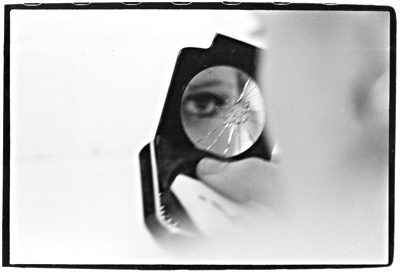All Nonfiction
- Bullying
- Books
- Academic
- Author Interviews
- Celebrity interviews
- College Articles
- College Essays
- Educator of the Year
- Heroes
- Interviews
- Memoir
- Personal Experience
- Sports
- Travel & Culture
All Opinions
- Bullying
- Current Events / Politics
- Discrimination
- Drugs / Alcohol / Smoking
- Entertainment / Celebrities
- Environment
- Love / Relationships
- Movies / Music / TV
- Pop Culture / Trends
- School / College
- Social Issues / Civics
- Spirituality / Religion
- Sports / Hobbies
All Hot Topics
- Bullying
- Community Service
- Environment
- Health
- Letters to the Editor
- Pride & Prejudice
- What Matters
- Back
Summer Guide
- Program Links
- Program Reviews
- Back
College Guide
- College Links
- College Reviews
- College Essays
- College Articles
- Back
Mirror Mirror
I am 5’2’’, 112 pounds. Perfectly average for my height. But every morning I roll out of bed, look in the mirror, and suck my stomach in and stretch my back until I look 5’5’’ and 105 pounds. But I am not alone. Girls all over the country wake up every day pretending to be something they are not. But why? Why do we, as girls, strive for perfection? Because we see women in magazines who eat nothing and have everything, and we want that for ourselves.
Studies in the 2011 documentary Miss Representation show that the average young person spends 10 hours and 45 minutes a day under the influence of the media. That means that girls are constantly surrounded by the messages that the media is sending them. When we are so exposed to the idealized worlds on television, we forget that they not attainable in the real world.
But what are these messages that constantly surround us? For women, the media is telling us what we should look like, what should be important to us, and how we should behave. “The typical woman [portrayed in the media] is young, Caucasian, blond, very thin, very attractive,” said Dr. Barbara Berg, a professor of Women’s Studies at The Spence School in New York City. Berg has published five books on the topic, and was interviewed in the film. Women in the media are valued for their appearances, not their minds, said Berg. When young, impressionable minds are surrounded by these images, they strive to recreate them.
This crusade for perfection is a phenomenon that has spread throughout the country, and the effects are visible. According to studies referenced in the film, approximately 10 million girls and women in America are struggling with eating disorders, and the rates of depression among young girls have doubled since the year 2000. According to the film makers, the messages the media sends girls have a significant effect, shaping both how they view themselves, and how they view other women.
The effects of this tragic portrayal of women infect every aspect of our country, including women’s writing. Studies done by Dr. Berg show that women tend to write more romance novels, while men write about more profound topics. Women also have a harder time getting published, and gain less recognition in any event related to writing. Even here at Duke Young Writers Camp, many girls said that they feel limited as writers. “I feel like the competition [in the publishing industry] is swayed towards men,” one girl said.
I am fully aware that, just like many other girls in this country, I buy into the messages the media sends me. I am overly concerned with my looks, and sometimes I feel pressure to behave like the women on television. I used to view writing as an escape from the influence of popular culture, however I have learned that even when I write I am being affected by what I have seen in magazines or on TV. Everyone is.

Similar Articles
JOIN THE DISCUSSION
This article has 0 comments.
